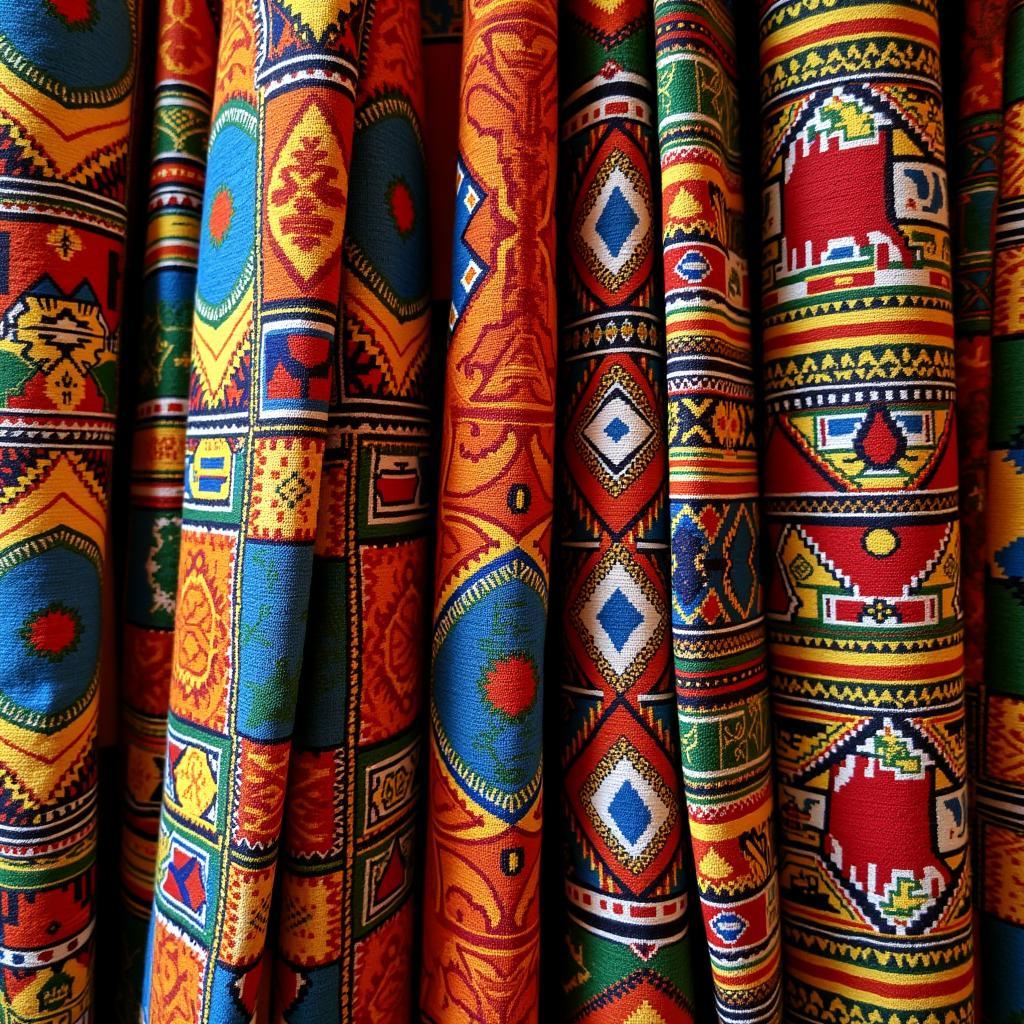African Indian Elephant Hybrid: Myth or Reality?
The idea of an “African Indian Elephant Hybrid” sparks curiosity and wonder. Could these two majestic species, separated by continents and evolutionary paths, actually interbreed? While the concept might seem like something out of a fantasy novel, it’s a question that deserves a closer look.
Unraveling the Science Behind Elephant Hybridization
To understand the possibility of an African Indian elephant hybrid, we must first delve into the world of elephant taxonomy. While all elephants share common ancestry, they diverged into distinct species millions of years ago. African bush elephants (Loxodonta africana) and Asian elephants (Elephas maximus), including the Indian elephant subspecies (Elephas maximus indicus), are classified under different genera. This distinction highlights significant genetic differences.
 African and Indian Elephant Size Comparison
African and Indian Elephant Size Comparison
Genetic Compatibility: Hybridization occurs when two different species successfully reproduce, resulting in fertile offspring. The degree of genetic similarity plays a crucial role. While lions and tigers, for example, can hybridize due to a closer evolutionary relationship, the vast genetic distance between African and Indian elephants makes natural hybridization highly improbable.
Physical Barriers: Geographical isolation acts as a natural barrier against interbreeding. African elephants roam the savannas and forests of sub-Saharan Africa, while Indian elephants inhabit parts of Asia. The physical separation minimizes the chances of natural encounters for potential mating.
Historical Accounts and Anecdotal Evidence
History is often filled with tales of mythical creatures, and some accounts mention elephant hybrids. However, these stories lack scientific evidence and are generally considered folklore.
The Case of “Motty”: One often-cited example involves “Motty,” a calf born in 1978 at Chester Zoo in England. Motty’s parents were an Asian elephant cow and an African bush elephant bull. Sadly, Motty died of health complications at a young age. While considered a potential hybrid, DNA testing was not available at the time to confirm his genetic makeup.
 Motty the Elephant Calf at Chester Zoo
Motty the Elephant Calf at Chester Zoo
Conservation Implications and Ethical Considerations
The question of an African Indian elephant hybrid extends beyond mere curiosity. It touches upon important conservation and ethical considerations.
Genetic Integrity: Hybridization, while a natural process in some cases, can pose risks to the genetic integrity of endangered species. Introducing genes from a different species can dilute the unique adaptations that allow each species to thrive in its specific environment.
Ethical Breeding: Intentionally breeding animals across species raises ethical concerns about animal welfare. Hybrids often face health issues and may not adapt well to captivity or the wild.
Conclusion
While the idea of an African Indian elephant hybrid is intriguing, scientific evidence suggests it’s highly unlikely in natural settings. While historical accounts and anecdotal evidence exist, they lack the concrete proof required for scientific validation. Instead of focusing on creating hybrids, conservation efforts should prioritize protecting both African and Indian elephants in their natural habitats, ensuring their survival for generations to come.
FAQs about African Indian Elephant Hybrids
1. Could scientists create an African Indian elephant hybrid in a lab?
While theoretically possible with advanced genetic techniques, the ethical implications and potential risks to the animals make it highly improbable.
2. Are there any other examples of potential elephant hybrids?
Aside from “Motty,” there are no documented cases of confirmed African Indian elephant hybrids.
3. Why is it important to protect the genetic diversity of elephants?
Genetic diversity allows species to adapt to environmental changes and diseases. Maintaining distinct species ensures their long-term survival.
Do you have more questions about elephants or other fascinating creatures of Africa? Explore our website for more insightful articles and expand your knowledge of the magnificent wildlife that inhabits this diverse continent.
Need assistance planning your dream African safari? Contact us!
Phone Number: +255768904061
Email: [email protected]
Address: Mbarali DC Mawindi, Kangaga, Tanzania.
Our dedicated team is available 24/7 to assist you.

